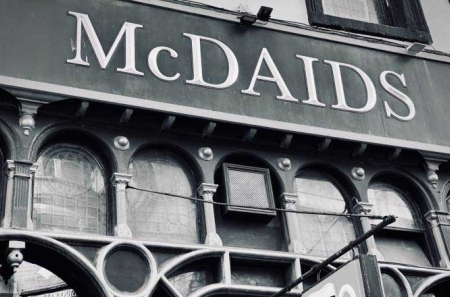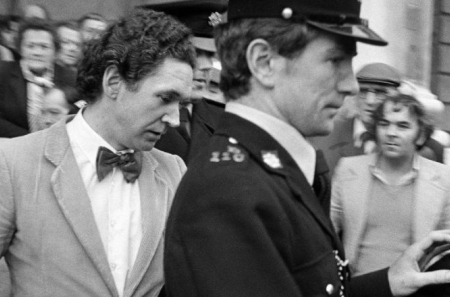Karl Marx and the DIB: Mary Burns
08 May 2018Coinciding with the opening in the IFI of the narrative film The young Karl Marx we feature a prominent figure in the film, Mary Burns.
The film is directed by Raoul Peck, whose previous film was the BAFTA-winning documentary I am not your negro. Mary Burns (1823–63), an Irish-born mill worker and radical in Manchester, was the unmarried partner of Marx’s closest associate, Friedrich Engels, whom she assisted in his researches on the condition of the working class in England. Mary's sister Lizzie (1827–78) was described by Engels as ‘a real child of the Irish proletariat’.
Read the DIB entry on Burns, by Frances Clarke, below:
Burns, Mary (1823–63), mill hand and social radical, was born in Ireland, daughter of an Irish dyer who emigrated to Manchester. Shortly afterwards (1842), while employed there at the Victoria Mills of Ermen & Engels, she first met and fell in love with the socialist Friedrich Engels while he was on his first visit to the city. She introduced him to the slums of Manchester, in particular ‘Little Ireland’ to the south of the city, thus giving him a first-hand knowledge of working-class living conditions. Together they also attended workers' mass meetings in the Hall of Sciences. Engels left Manchester in 1844, returned in the summer of 1845 and revisited Burns, and subsequently took her to live with him on the Continent, where they continued to attend political meetings. The unofficial nature of their liaison attracted comment: Karl Marx and, particularly, his wife Jenny appear to have disapproved of Engels's relations with her. Back in Manchester (1850) they settled down together in a terraced house in Ardwick, on the outskirts of the city, separate from Engels's private apartments. Her niece Mary Ellen Burns (known as ‘Pumps’) and sister Lydia (‘Lizzie’) Burns also lived with them. Credited with some responsibility for the interest Engels took in Irish affairs, she made a tour of Ireland (1856) with her common-law husband. After her sudden death (6 January 1863) Engels wrote to Marx: ‘I feel I have buried with her all that was left of my youth.’ Marx may not have appreciated the strength of the attachment, and his indifferent response greatly offended Engels. Lizzie Burns (1827–78), described by Engels as ‘a real child of the Irish proletariat’, subsequently became Engels's wife, though they were not officially married until the day before her death. In 1865 she and Engels both became members of the First International. She was a close friend of Marx's daughter Eleanor, in whom she instilled a fervent enthusiasm for Irish nationalism. As a result of her influence Eleanor took to reading the nationalist paper The Irishman, and the two women accompanied Engels on a return visit to Ireland (1869), during which they witnessed the Fenian amnesty movement at its height. Lizzie claimed that she assisted and provided asylum for several Fenian activists, including some of those involved in the attack on the police-van in Manchester (18 September 1867) which led to the execution of the ‘Manchester martyrs’. Engels gave up his official home after retiring from business (1869) to live with her permanently. They later moved to London (1870), and in efforts to improve her failing health spent time in Scotland, Ramsgate, Brighton, and Germany. She died 12 September 1878 in London, and was buried in St Mary's Roman Catholic cemetery, Kensal Green.
Mick Jenkins, Frederick Engels in Manchester (1951); Karl Marx and Friedrich Engels on Ireland (1971); Yvonne Kapp, Eleanor Marx, i: Family life 1855–1883 (1972); W. O. Henderson, The life of Friedrich Engels (2 vols, 1976); Sean Daly, Ireland and the First International (1984), 8–9; Terrel Carver, Friedrich Engels, his life and thought(1989) (photo of Lizzie); J. D. Henley, The life and time of Friedrich Engels (1991); Ir. Times, 5 Aug. 1995
Follow the DIB on Twitter @DIB_RIA – where we post topical biographies.
All 10,423 biographies are available at: dib.cambridge.org



